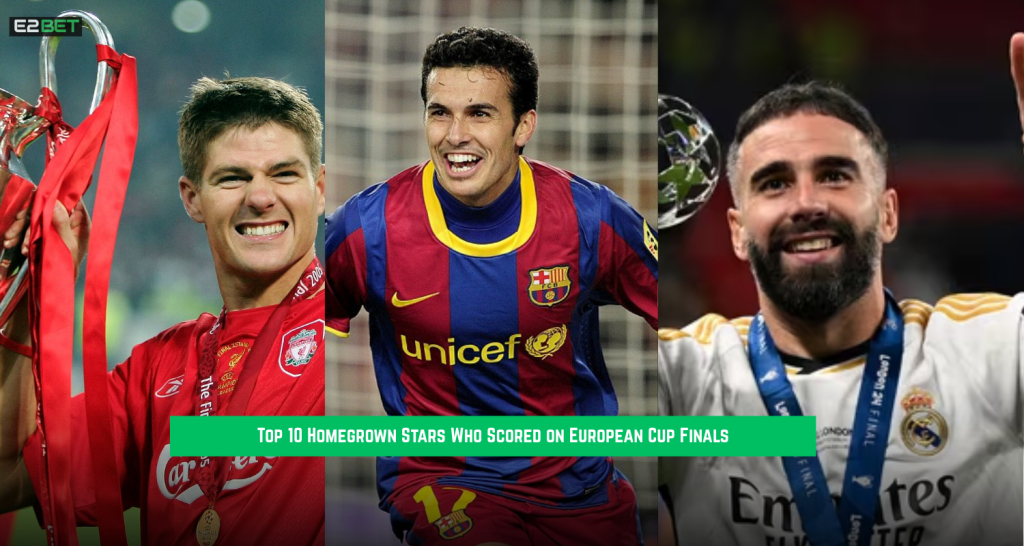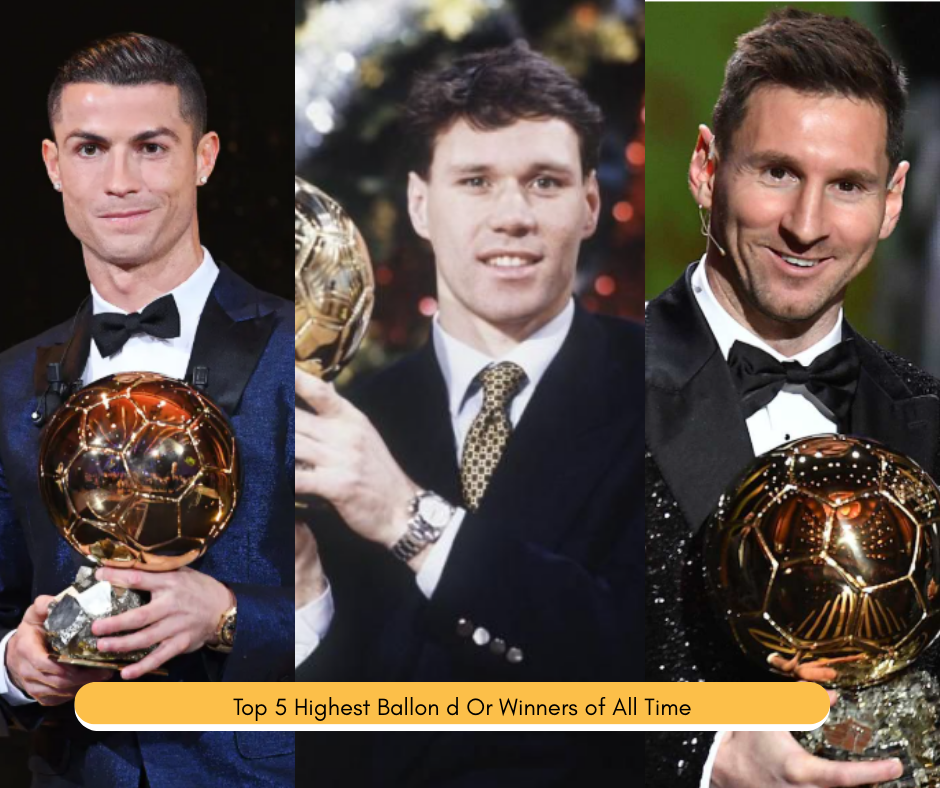The European Cup, now known as the UEFA Champions League, has witnessed numerous memorable moments, with homegrown players often at the heart of these iconic matches. These players, nurtured within their club’s youth systems, have not only represented their teams but have also etched their names in the annals of European football history by scoring in the prestigious final matches.
10. Patrick Kluivert (Ajax vs AC Milan, 1995)
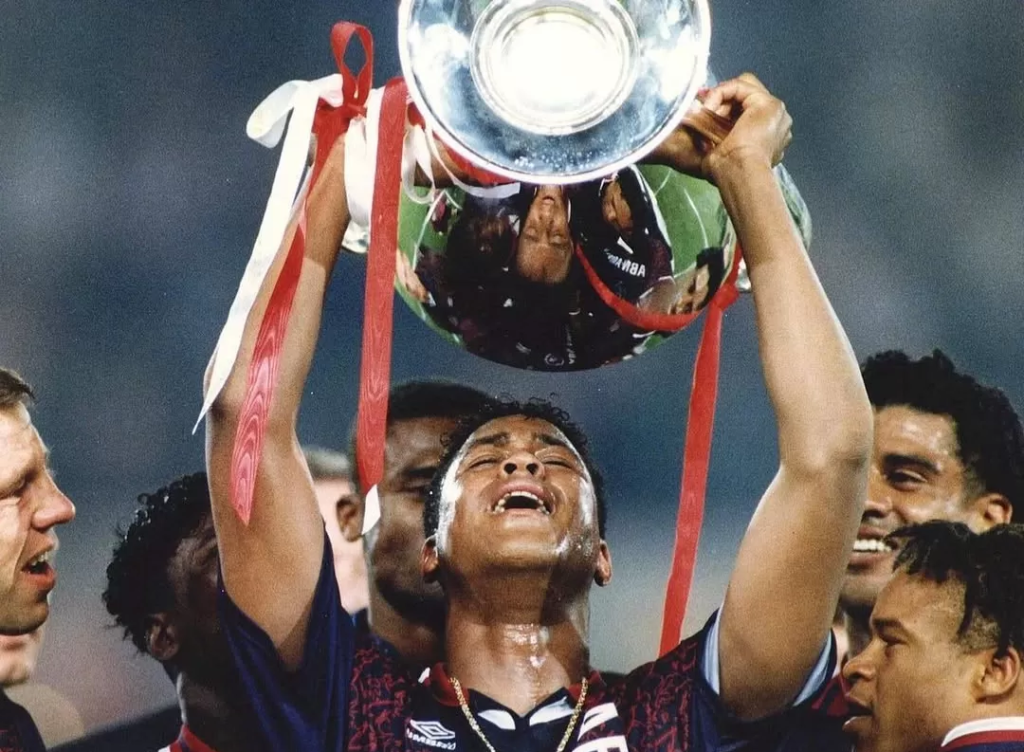
Patrick Kluivert’s goal in the 1995 European Cup final remains one of the most iconic moments in Ajax history. Coming off the bench at 18 years and 327 days, he scored the only goal of the match against AC Milan, sealing Ajax’s triumph and making him the youngest scorer in a European Cup final at that time. His strike came after a perfect pass from Frank Rijkaard, demonstrating composure and clinical finishing under immense pressure. For Ajax, the goal was the culmination of their attacking philosophy, which emphasized youth development and tactical intelligence.
Kluivert’s breakthrough also highlighted the club’s ability to nurture homegrown talents capable of performing on the biggest stages. This performance not only earned him a permanent spot in the first team but also set a standard for young forwards across Europe aspiring to shine in major finals.
The significance of Kluivert’s goal extends beyond the single match. It represented a turning point for Ajax, whose academy had consistently produced world-class talents. His performance inspired a generation of Dutch players, proving that age is no barrier to impact at the highest level. Additionally, Kluivert’s composure and decision-making in the final reflect Ajax’s footballing philosophy, which integrates technical skill, intelligent movement, and teamwork. This goal remains a benchmark for homegrown players seeking to leave their mark in European Cup Finals, emphasizing how youth players can influence outcomes and become legends in their own right.
9. Lars Ricken (Borussia Dortmund vs Juventus, 1997)
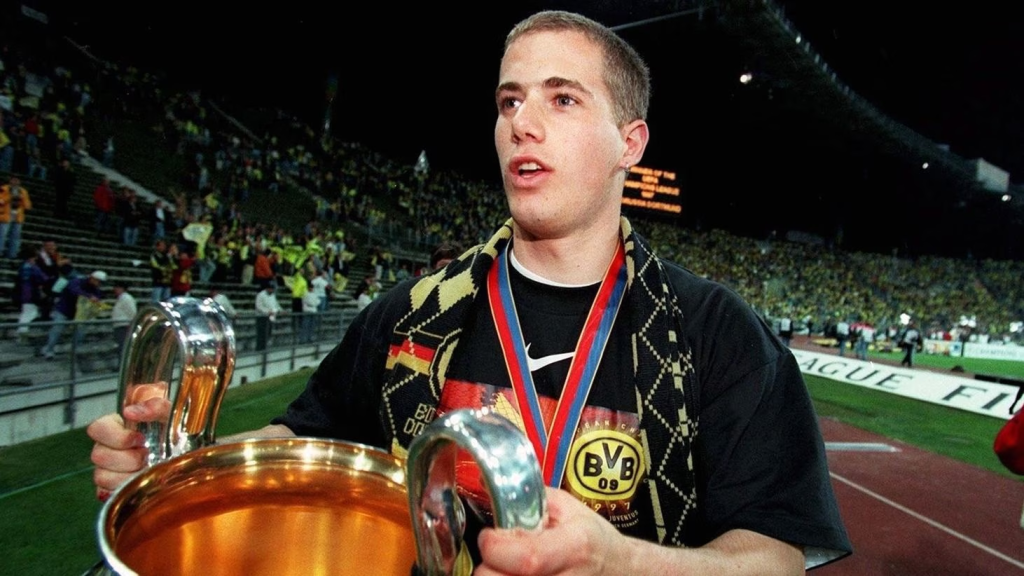
Lars Ricken’s brief but decisive contribution in the 1997 European Cup final against Juventus remains one of the fastest and most remarkable moments in final history. Coming on as a substitute, the 20-year-old midfielder scored with his very first touch, latching onto a precise pass from Andreas Möller and chipping the ball over Juventus goalkeeper Angelo Peruzzi.
Ricken’s goal, which helped Borussia Dortmund secure a 3-1 victory, showcased not only his technical ability but also the trust placed in homegrown players by Dortmund’s coaching staff. His introduction at such a crucial juncture of the match underlined the club’s philosophy of integrating academy talents into high-pressure scenarios, enabling them to contribute decisively even in the most critical moments.
Beyond the immediate impact, Ricken’s goal symbolizes the potency of youth development in European football. By scoring within seconds of entering the pitch, he demonstrated a combination of preparation, confidence, and instinct that is essential for homegrown players in top competitions. Borussia Dortmund’s investment in nurturing local talents paid dividends, with Ricken’s performance becoming a blueprint for how clubs can effectively use substitutes from their academy. His achievement remains a reference point for coaches and young players alike, emphasizing that opportunities can be maximized with composure, awareness, and skill during the most important matches in European Cup Finals.
8. Raúl (Real Madrid vs Valencia & Bayer Leverkusen, 2000 & 2002)
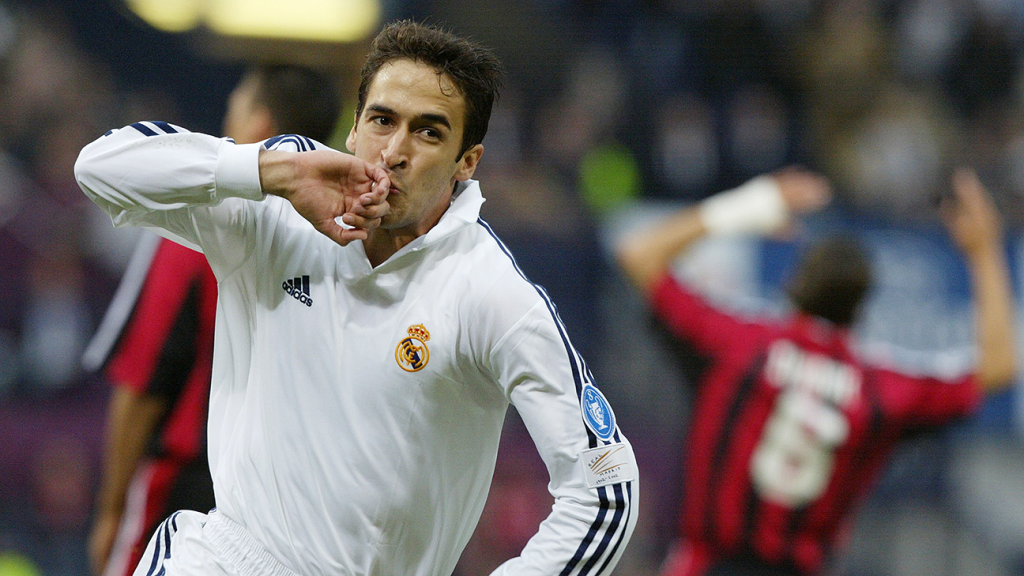
Raúl González is one of the most celebrated homegrown talents in European Cup Finals history. A product of Atlético Madrid’s youth system before moving to Real Madrid, Raúl made his first-team debut at 17 and quickly became a crucial part of the squad. In the 2000 final against Valencia, he scored the third goal after a brilliant solo run that showcased his composure, vision, and ability to finish under pressure. Two years later, in the 2002 final against Bayer Leverkusen, Raúl opened the scoring with a perfectly timed first-time strike from a long throw by Roberto Carlos.
These contributions were pivotal in Real Madrid securing their Champions League titles and cementing Raúl’s legacy as a homegrown star performing on Europe’s grandest stage.Raúl’s goals in European Cup Finals were more than mere statistics; they reflected his understanding of timing, positioning, and teamwork. Both strikes demonstrated how academy-trained players could influence the biggest matches, blending natural talent with rigorous preparation.
His success inspired countless young footballers, particularly in Spain, proving that dedication to club philosophy and consistent development could result in unforgettable moments in finals. Raúl’s career remains a testament to the power of nurturing homegrown players, illustrating how youth academy graduates can leave an indelible mark in European Cup Finals while contributing to their club’s enduring dominance.
7. Paolo Maldini (AC Milan vs Liverpool, 2005)

Paolo Maldini’s goal in the 2005 European Cup final against Liverpool is etched in football history, both for its timing and the player’s enduring legacy. The AC Milan captain volleyed home from an Andrea Pirlo free-kick within the first minute of the match in Istanbul, giving Milan a dream start. Maldini, a product of the Milan youth academy, had already established himself as one of the finest defenders in the world, and scoring in a European Cup Final highlighted the rare ability of defenders to make decisive contributions.
Despite Milan ultimately losing on penalties after leading 3-0 at halftime, Maldini’s goal underlined his leadership, technical ability, and composure in crucial moments, embodying the value of homegrown talent in shaping high-stakes matches. Beyond the immediate result, Maldini’s European Cup Final goal represented the culmination of years of dedication to AC Milan’s philosophy of promoting youth players.
His journey from academy graduate to captain and scorer in Europe’s most important match illustrated the potential of club-trained talents to impact every aspect of the game, including scoring goals. The performance inspired future generations of defenders and emphasized that homegrown players are not just foundational but can deliver spectacular moments under pressure. Maldini’s contribution remains a celebrated example of excellence in European Cup Finals for academy-trained footballers.
Also Read:
- Top 10 Relentless Premier League Strikers Dominating the Field in 2025
- Top 10 Fiercest Football Derbies in British Football History
6. Steven Gerrard (Liverpool vs AC Milan, 2005)

Steven Gerrard’s performance in the 2005 European Cup final is often regarded as one of the most heroic in homegrown player history. Liverpool trailed 3-0 at halftime against AC Milan in Istanbul, and it was Gerrard who inspired the remarkable comeback. Scoring in the 54th minute, he pulled one back and later won the penalty that Xabi Alonso converted. Gerrard, a Liverpool academy graduate, exemplified leadership and resilience, motivating his teammates to overturn a seemingly insurmountable deficit. His goal showcased his ability to step up when it mattered most, combining tactical intelligence with sheer determination, while highlighting the importance of nurturing homegrown players capable of influencing European Cup Finals.
Gerrard’s contribution extended beyond the goal itself. His drive, vision, and relentless energy galvanized the team, turning the momentum in Liverpool’s favor. Academy-trained players like Gerrard often possess an intrinsic understanding of their club’s culture, and this familiarity can be decisive in finals. By leading the comeback, Gerrard demonstrated that homegrown talent can excel under intense pressure, providing both technical excellence and inspirational leadership. His legacy in European Cup Finals illustrates the unique value of developing players internally, capable of producing iconic performances that resonate for decades.
5. Lionel Messi (Barcelona vs Manchester United, 2009 & 2011)

Lionel Messi, a product of Barcelona’s La Masia academy, scored crucial goals in two European Cup Finals against Manchester United. In 2009, Messi rose unchallenged to head home from a Xavi cross, sealing a 2-0 victory and completing a treble for Pep Guardiola’s side. Two years later, he scored a memorable long-range effort in Barcelona’s 3-1 win at Wembley, demonstrating his extraordinary technique, precision, and composure under pressure. Messi’s ability to shine in European Cup Finals underscored the effectiveness of Barcelona’s youth development system, which emphasizes technical mastery, tactical awareness, and creativity. His contributions proved that academy graduates could consistently perform on football’s biggest stages.
Messi’s goals reflected his versatility, vision, and understanding of the game, qualities nurtured in La Masia. Beyond individual skill, his performances demonstrated how homegrown players can influence team dynamics, inspiring teammates and intimidating opponents in finals. Messi’s presence in European Cup Finals was transformative, emphasizing that clubs investing in academy training can cultivate players capable of producing decisive moments and lifting prestigious trophies. His legacy continues to inspire young footballers globally, showcasing the enduring impact of homegrown talent in European Cup Finals.
4. Pedro (Barcelona vs Manchester United, 2011)

Pedro Rodríguez played a pivotal role in Barcelona’s 3-1 victory over Manchester United in the 2011 European Cup Final at Wembley. The homegrown talent, a product of Barcelona’s La Masia academy, opened the scoring in the 27th minute by finishing low inside the post after a perfectly timed pass from Xavi. Pedro’s goal set the tone for the match and highlighted his intelligence, positioning, and clinical finishing. As a forward nurtured within the Barcelona system, he demonstrated the seamless integration of academy graduates into high-pressure scenarios, proving that homegrown players could decisively influence European Cup Finals.
Beyond the goal, Pedro’s movement and understanding of space exemplified the technical and tactical training he received at La Masia. His contribution was critical in complementing Messi and David Villa, ensuring Barcelona maintained control throughout the game. Pedro’s performance showcased the club’s philosophy of developing versatile forwards capable of performing under intense pressure, further emphasizing the importance of nurturing homegrown talent. His role in the final remains a benchmark for academy graduates aspiring to leave a mark on European Cup Finals, illustrating that smart, disciplined, and technically gifted players can shine when it matters most.
3. Thomas Müller (Bayern Munich vs Chelsea, 2012)
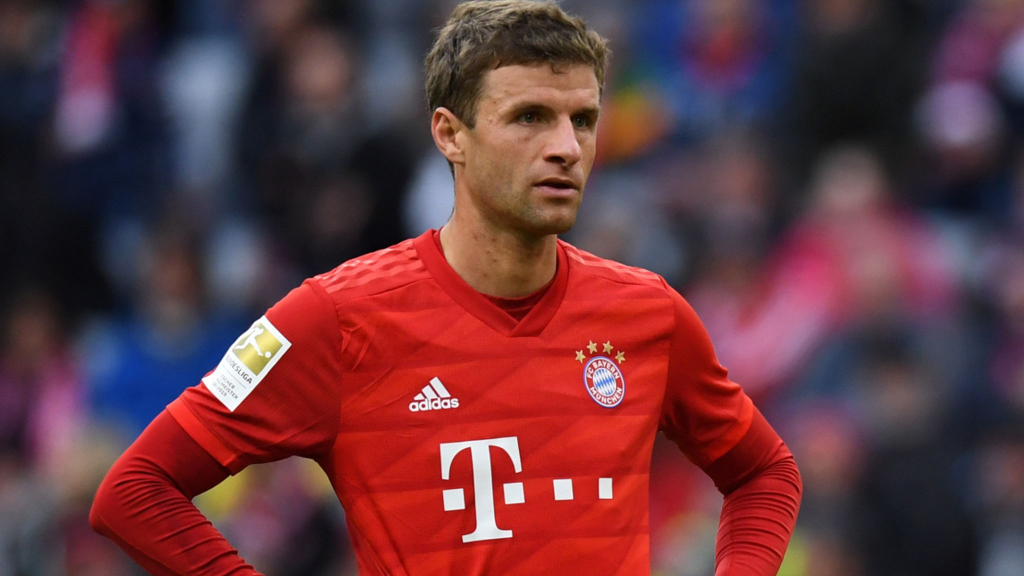
Thomas Müller, a Bayern Munich academy graduate, scored the opening goal in the dramatic 2012 European Cup Final against Chelsea. His header from Toni Kroos’ precise cross in the 83rd minute briefly put Bayern in the lead, igniting celebrations at the Allianz Arena. Müller’s goal highlighted his trademark intelligence in positioning, timing, and aerial ability, traits honed through years of youth development. Although Chelsea eventually leveled and won on penalties, Müller’s performance showcased how homegrown talents can make decisive contributions in high-stakes European Cup Finals.
Müller’s impact extended beyond scoring. His movement and ability to read the game allowed Bayern to dominate possession and create opportunities, emphasizing the value of academy-trained players in orchestrating key moments. By breaking the deadlock, Müller demonstrated the importance of persistence, awareness, and technical skill in finals. His goal serves as a reminder that investing in youth development can produce players capable of stepping up at critical junctures in European Cup Finals. Müller’s legacy continues to inspire young German footballers to pursue excellence and make their mark on football’s biggest stages.
2. Dani Carvajal (Real Madrid vs Borussia Dortmund, 2024)

Dani Carvajal, one of Real Madrid’s homegrown stars, scored the opening goal in the 2024 European Cup Final against Borussia Dortmund at Wembley. The right-back, who returned to Madrid after an early spell at Bayer Leverkusen, headed home from a Toni Kroos corner to give Los Blancos an early advantage. Carvajal’s goal illustrated the growing trend of defenders contributing decisively in European Cup Finals, blending defensive solidity with attacking prowess. His performance underlined how academy-trained players could combine tactical discipline with technical execution to influence high-pressure matches.
Carvajal’s contribution highlighted the importance of versatility and consistent development in youth systems. His ability to score in a European Cup Final reflected not only his individual skill but also Real Madrid’s philosophy of integrating academy graduates into pivotal roles. By setting the tone early, Carvajal allowed his team to control the match’s rhythm and ultimately secure a 2-0 victory. His achievement serves as a model for young players, demonstrating that homegrown talents can excel across positions and deliver decisive moments in European Cup Finals, further cementing the value of robust youth development programs.
1. Senny Mayulu (Paris Saint-Germain vs Inter, 2025)
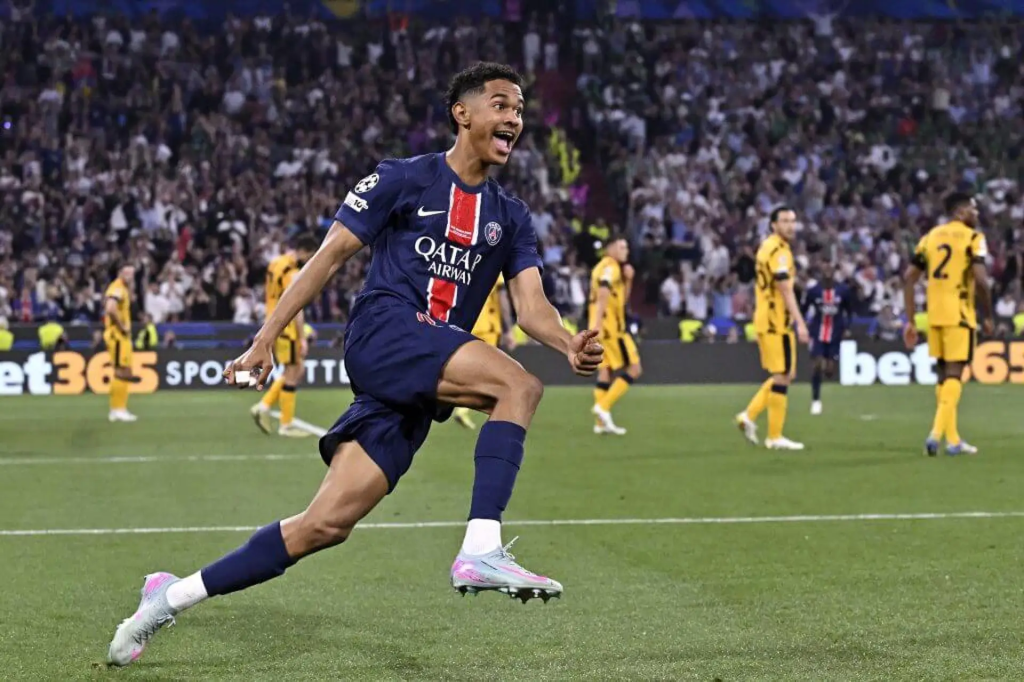
Senny Mayulu’s goal in the 2025 European Cup Final marked a memorable moment for Paris Saint-Germain and the world of academy graduates. Entering the match with six minutes remaining and PSG already leading 4-0 against Inter, the 19-year-old executed a perfectly timed one-two with Bradley Barcola before slotting home from a tight angle. His goal not only capped off an emphatic victory but also made him the second-youngest scorer in European Cup Final history. Mayulu’s strike highlighted his composure, technical skill, and readiness to perform under the spotlight, demonstrating the rising impact of this new generation of homegrown talents post-2000.
Mayulu’s achievement emphasizes the evolving landscape of European Cup Finals, where youth players from elite academies are increasingly seizing the moment on football’s grandest stage. His success represents PSG’s commitment to integrating academy graduates into first-team roles while showcasing the potential of the post-2000 generation to leave lasting legacies. Mayulu’s goal not only secured his place in history but also inspired young players worldwide, proving that preparation, technical ability, and confidence can allow homegrown stars to shine in European Cup Finals and contribute meaningfully to their club’s success at the highest level.
FAQs
Q1: Who holds the record for the youngest goal scorer in a European Cup final?
Patrick Kluivert holds the record, scoring at 18 years and 327 days in the 1995 final.
Q2: Which club has produced the most homegrown goal scorers in European Cup finals?
Real Madrid has a notable history of developing players who have scored in European Cup finals, including Raúl González and Dani Carvajal.
Q3: Has any player scored multiple goals in a European Cup final?
Yes, several players have scored multiple goals in European Cup finals, including Cristiano Ronaldo and Lionel Messi.
Q4: What is the significance of homegrown players scoring in European Cup finals?
It highlights the effectiveness of a club’s youth development system and the importance of nurturing local talent.
Q5: Are there any notable recent homegrown goal scorers in European Cup finals?
Yes, players like Senny Mayulu and Désiré Doué have recently made significant impacts in European Cup finals.
